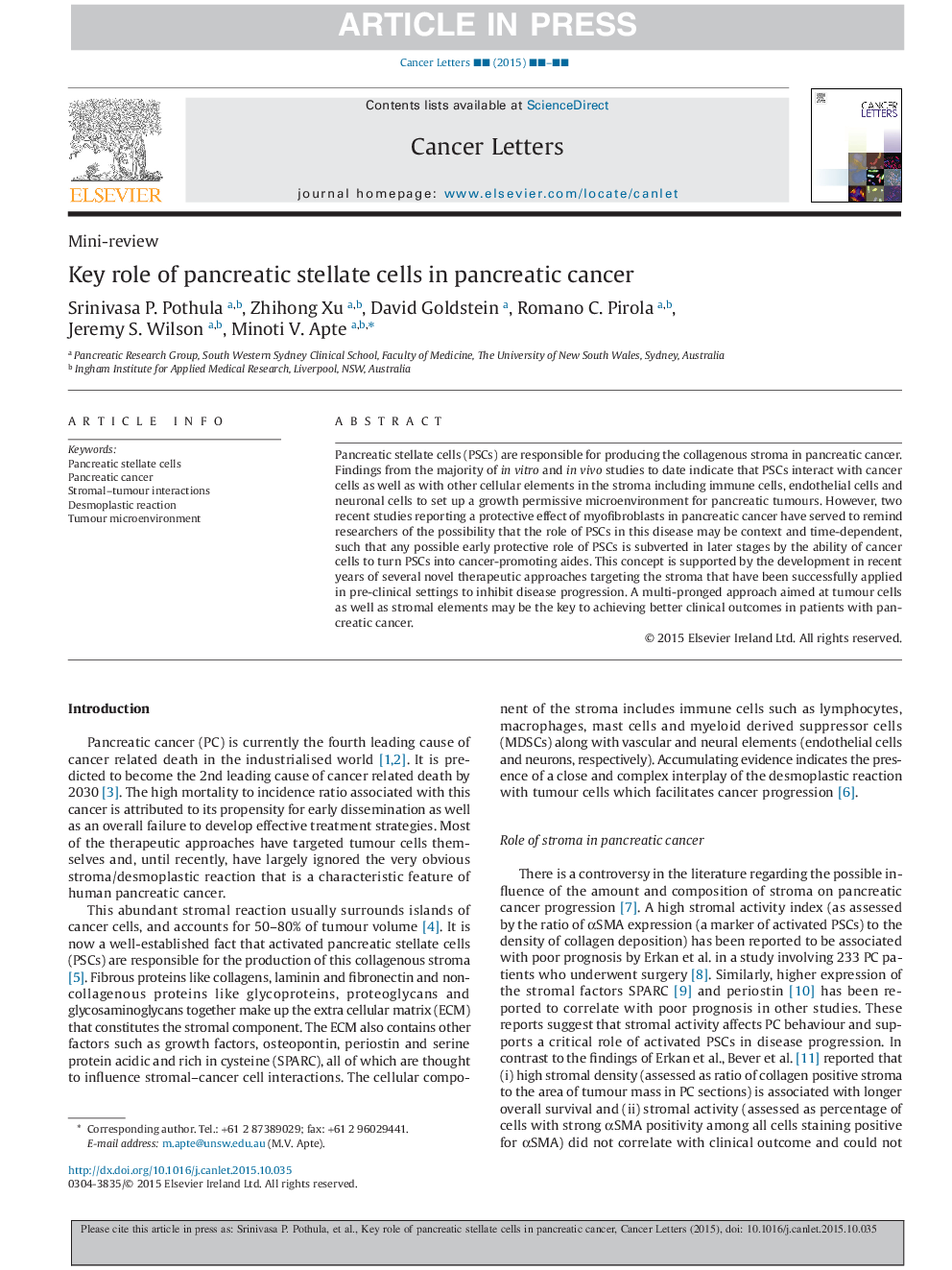| Article ID | Journal | Published Year | Pages | File Type |
|---|---|---|---|---|
| 10899281 | Cancer Letters | 2016 | 7 Pages |
Abstract
Pancreatic stellate cells (PSCs) are responsible for producing the collagenous stroma in pancreatic cancer. Findings from the majority of in vitro and in vivo studies to date indicate that PSCs interact with cancer cells as well as with other cellular elements in the stroma including immune cells, endothelial cells and neuronal cells to set up a growth permissive microenvironment for pancreatic tumours. However, two recent studies reporting a protective effect of myofibroblasts in pancreatic cancer have served to remind researchers of the possibility that the role of PSCs in this disease may be context and time-dependent, such that any possible early protective role of PSCs is subverted in later stages by the ability of cancer cells to turn PSCs into cancer-promoting aides. This concept is supported by the development in recent years of several novel therapeutic approaches targeting the stroma that have been successfully applied in pre-clinical settings to inhibit disease progression. A multi-pronged approach aimed at tumour cells as well as stromal elements may be the key to achieving better clinical outcomes in patients with pancreatic cancer.
Related Topics
Life Sciences
Biochemistry, Genetics and Molecular Biology
Cancer Research
Authors
Srinivasa P. Pothula, Zhihong Xu, David Goldstein, Romano C. Pirola, Jeremy S. Wilson, Minoti V. Apte,
